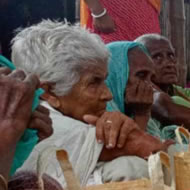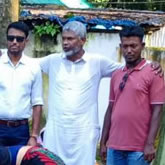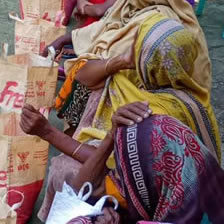Combating Hunger in Bangladesh: The Vital Role of Rice Aid
- Jeffrey Dunan
- Jul 18, 2025
- 4 min read
Introduction to Rice Food Aid in Bangladesh

Bangladesh, a nation with a dense population and a predominantly agrarian society, continues to face challenges related to food security. Despite significant advancements in agricultural production, many communities still struggle with inadequate access to nutritious food. Among the critical staples, rice holds a paramount position in Bangladesh’s food consumption patterns.
The role of rice food aid in Bangladesh has therefore become a vital mechanism to combat hunger, malnutrition, and poverty. One of the key contributors in this humanitarian effort is Lotus Ministry Trust, an organization dedicated to improving living conditions through sustainable food aid programs.
The Importance of Rice in Bangladesh’s Food System
Rice is the fundamental dietary staple for the majority of Bangladeshis, providing approximately 60% of their caloric intake. It is grown extensively across the country, with multiple cropping seasons allowing for substantial production levels. However, despite domestic cultivation, natural disasters such as floods, cyclones, and droughts plus socio-economic disparities have led to significant pockets of food insecurity.
Rice food aid in Bangladesh, therefore, fills an essential gap. It targets vulnerable populations including low-income families, refugees, and internally displaced persons whose access to food is compromised. By distributing rice, aid programs help alleviate immediate hunger and reduce the risk of malnutrition which is a persistent problem in many rural and urban slum areas.
Lotus Ministry Trust: Mission and Vision
Lotus Ministry Trust is a charitable organization committed to the upliftment of underprivileged communities primarily through food aid programs. Founded with the mission to eradicate hunger and foster sustainable development, the Trust has emphasized rice aid in Bangladesh as a focal point due to rice’s nutritional and cultural significance.
Their vision is not just to provide emergency relief but to enable communities to build resilience against future food shortages. By integrating food aid with educational initiatives and agricultural support, Lotus Ministry Trust aims for a holistic approach to poverty alleviation.

Implementation of Rice Food Aid Programs by Lotus Ministry Trust
The Lotus Ministry Trust executes rice food aid in Bangladesh through a series of well-planned, community-centered programs. They operate in collaboration with local governments, NGOs, and community leaders to ensure that aid reaches the most marginalized groups efficiently and transparently.
One crucial strategy is the establishment of food distribution centers strategically located in remote or disaster-affected zones. These centers not only supply rice but also provide nutritional counseling and encourage practices that improve food utilization.
Moreover, the Trust’s rice aid in Bangladesh prioritizes vulnerable groups such as children, pregnant and lactating women, and the elderly, recognizing these populations’ increased nutritional needs. The Trust also carries out regular monitoring and evaluation to assess the impact of these interventions and adapt strategies accordingly.
Impact of Rice Aid in Bangladesh: Case Studies and Success Stories
The impact of Lotus Ministry Trust’s rice aid programs has been profound. In coastal areas prone to cyclones, timely rice distribution has prevented mass starvation during emergency periods. For example, during severe floods in northern Bangladesh, the Trust delivered over 50 tons of rice to displaced families, enabling them to survive the crisis without resorting to distress sales of assets or dangerous borrowing.
In urban slums of Dhaka, where economic vulnerability is often compounded by lack of access to affordable food, Lotus Ministry Trust’s initiatives have improved household food security. Many beneficiary families report increased stability and health improvements among their children, attributed to more consistent rice supply.
An inspiring quote from the coordinator for Lotus Ministry Trust’s Bangladesh programs, captures the essence of their mission: “Rice is not just food; it is dignity, hope, and life for millions in Bangladesh. Our work ensures no one goes to bed hungry.”

Challenges Faced by Rice Food Aid in Bangladesh
Despite the successes, providing rice aid in Bangladesh comes with various challenges. Logistical difficulties often arise due to the country’s complex geography, including many waterlogged and flood-prone areas that inhibit efficient transport of food supplies.
Furthermore, ensuring that rice reaches the intended recipients without losses due to theft, spoilage, or bureaucratic inefficiency demands robust management systems. Lotus Ministry Trust continuously invests in technology and partner training to minimize such risks.
In light of the ongoing challenges faced by vulnerable communities, immediate support is crucial to alleviate the hardships caused by food scarcity. Many families in Bangladesh are struggling to meet their basic nutritional needs due to economic instability and natural disasters.
To make a tangible difference and provide urgent food relief to those in need, you can help by contributing to trusted initiatives dedicated to delivering essential supplies and sustaining livelihoods during these trying times.
Additionally, while rice is a critical staple, reliance solely on rice can lead to nutritional deficiencies. The Trust acknowledges this limitation and supplements rice aid with awareness programs promoting dietary diversification whenever possible.
The Future of Rice Food Aid and Sustainable Solutions
Looking ahead, Lotus Ministry Trust is committed to evolving their rice food aid initiatives to embrace sustainability and resilience. This involves incorporating climate-smart agriculture practices to support local rice production, thus reducing dependency on external aid.
They are also exploring partnerships for developing fortified rice varieties to address micronutrient deficiencies prevalent in Bangladesh. Strengthening local food systems is seen as essential for long-term food security.
Moreover, the Trust aims to expand community empowerment through vocational training and education alongside rice aid, enabling beneficiaries to break free from the cycle of poverty.
Conclusion: Rice Food Aid as a Lifeline in Bangladesh
The ongoing rice food aid efforts in Bangladesh underscore the critical intersection of humanitarian assistance and development. Through the dedicated work of organizations like Lotus Ministry Trust, vulnerable populations are not only receiving immediate relief but are also being supported towards self-sufficiency and improved quality of life.
Rice aid in Bangladesh goes beyond nourishment; it represents a beacon of hope in the fight against hunger and hardship. As Bangladesh continues to face environmental and socio-economic challenges, the sustained commitment of entities like Lotus Ministry Trust remains essential in ensuring no one is left behind in the quest for food security.











Comments